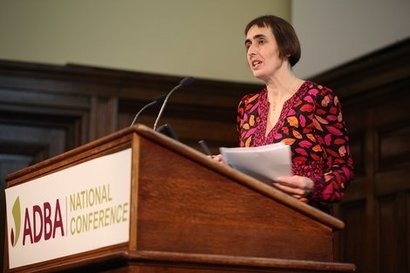
EFRA’s final report into the costs of food waste in England has been described by ADBA and EFRA as a ‘wake-up call' for the next Government. The report, published this week, examines what Committee Chair Neil Parish has called the ‘grotesque economic, environmental and social costs’ of food waste in England, estimated at over £10 billion a year excluding the disposal costs to Local Authorities.
It makes a series of recommendations on how food waste levels could be reduced and explicitly recognises the role that anaerobic digestion (AD) plays in recycling inedible food waste into low-carbon heat and power, green transport fuel, and organic biofertiliser, helping to recover valuable resources from food waste and meet the UK’s decarbonisation targets. The report states that AD is the best treatment option for food waste that cannot be avoided or redistributed for human or animal consumption.
ADBA submitted written evidence to the inquiry and its Chief Executive Charlotte Morton gave evidence directly to the Committee in February. The trade body has consistently called for mandatory separate food waste collections across England as a matter of urgency and for the Environment Agency (EA) to enforce the waste hierarchy to ensure that the value locked up in food waste can be recovered.
“This report is a yet another voice pushing food waste up the political agenda and is a real wake-up call for the next Government” said Ms Morton. “The levels of food waste we’re currently seeing in England are a scandal – not only does food waste cost the average household £470 a year (£700 for those with children) plus disposal costs, which we pay for in our council tax bills, it also has a huge environmental impact both in terms of the wasted resources that have gone into producing food that is not eaten and the greenhouse gas emissions emitted from landfill sites.”
Ms Morton added that England’s record in recycling food waste is shameful when compared to the devolved nations and other European nations. The UK Government needs to show national leadership in addressing this issue as a matter of urgency by legislating to roll out mandatory food waste collections for both households and businesses. This would both reduce food waste and its related carbon emissions and ensure that all unavoidable and inedible food waste can be recycled through anaerobic digestion, as the EFRA Committee’s report recommends.
ADBA agrees with the report that the incoming government also needs to work with the EA to enforce the waste hierarchy. It believes that it is essential that EA be given the resources and staff to be able to do so effectively.
ADBA is also calling on all political parties to use their manifestos for the upcoming general election to address the urgent problem of food waste and commit to introducing mandatory food waste collections in England, as all the devolved governments have already done.
Other recommendations made by the Committee include a national food waste target, greater participation in the voluntary Courtauld Agreement, mandatory reporting of food waste data by large food businesses, and mandatory separation of food waste by food businesses and retailers. ADBA supports each of these recommendations.
ADBA will set out its key manifesto asks for the AD industry within the next few days ahead of the upcoming general election, with its call for mandatory food waste collections in England a key part of this.
Image: Charlotte Morton, ADBA Chief Executive
For additional information:

